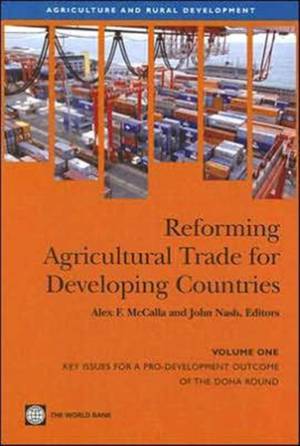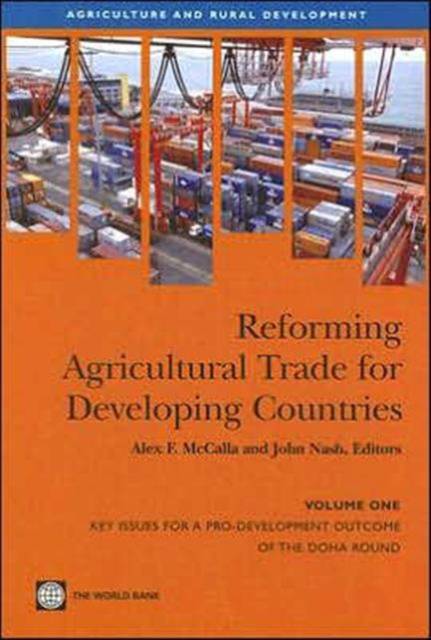
Je cadeautjes zeker op tijd in huis hebben voor de feestdagen? Kom langs in onze winkels en vind het perfecte geschenk!
- Afhalen na 1 uur in een winkel met voorraad
- Gratis thuislevering in België vanaf € 30
- Ruim aanbod met 7 miljoen producten
Je cadeautjes zeker op tijd in huis hebben voor de feestdagen? Kom langs in onze winkels en vind het perfecte geschenk!
- Afhalen na 1 uur in een winkel met voorraad
- Gratis thuislevering in België vanaf € 30
- Ruim aanbod met 7 miljoen producten
Zoeken
Reforming Agricultural Trade for Developing Countries
Key Issues for a Pro-Development Outcome of the Doha Round
John Nash, Alex F. McCalla
Paperback
€ 53,95
+ 107 punten
Omschrijving
Developing countries have greater leverage in the Doha Round negotiations, due, at least in part, to their growing share of world trade. But, it remains to be seen whether this influence will be translated into a final agreement that is truly more development-friendly. This title looks at select issues of importance to the developing countries.
Specificaties
Betrokkenen
- Auteur(s):
- Uitgeverij:
Inhoud
- Aantal bladzijden:
- 362
Eigenschappen
- Productcode (EAN):
- 9780821364963
- Verschijningsdatum:
- 30/11/2006
- Uitvoering:
- Paperback

Alleen bij Standaard Boekhandel
+ 107 punten op je klantenkaart van Standaard Boekhandel
Beoordelingen
We publiceren alleen reviews die voldoen aan de voorwaarden voor reviews. Bekijk onze voorwaarden voor reviews.









